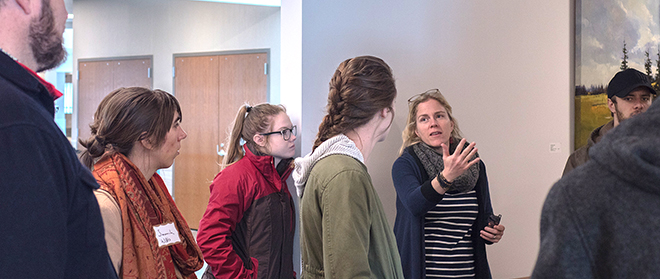Learning Objectives

Through a rigorous and dynamic curriculum, the Urban Studies and Community Development degree offers students the following Program Learning Outcomes:
- Master foundations: know conceptual and theoretical models in Urban Studies
- Identify problems: examine complex causes and systems that frame urban challenges
- Ask and answer questions: deploy research methods and tools to interrogate urban problems
- Communicate effectively: convey information in compelling ways to different audiences and constituencies
- Collaborate constructively: engage with colleagues, communities, and constituents who may have different views, values, knowledge, and expertise
- Identify structural inequalities; pinpoint practices and policies which perpetuate injustice
- Facilitate engagement: encourage opportunities for multiple constituencies to participate
- Participate: effectively contribute to your communities
In This Section:
Workshops
Workshops are an important skill-based component of the Urban Studies and Community Development degree. By giving students the opportunity to choose three (3) of the following offerings, they are able to mold the degree to fit their individual professional goals.
Tools and Strategies Workshops
- URBAN 340 Public Participation and Civic Engagement
- URBAN 341 Grant and Proposal Development
- URBAN 342 Survey Design
- URBAN 343 Public/Private Partnerships
- URBAN 344 Public Finance and Budgeting
- URBAN 345 Data Visualization
- URBAN 346 Community Development Strategies
- URBAN 347 Real Estate Development
- URBAN 348 Historic Preservation
- URBAN 349 Leadership in Community Development
- URBAN 350 Greening Strategies for the City
- SPS 495: Intro to Zoning and Land Use Regulation
Research
A fundamental component of Boise State’s Urban Studies and Community Development program is a focus on promoting original research by both faculty and students. Faculty are doing some of the most cutting-edge research in the field, from resilience studies that help communities better understand how to thrive in the midst of challenges such as climate change and deindustrialization, to redevelopment of shuttered military bases and innovative planning tools that focus on arts and culture as economic drivers. Students have the opportunity to work with faculty on these projects through inclusion on grants as well as through experiential learning coursework.